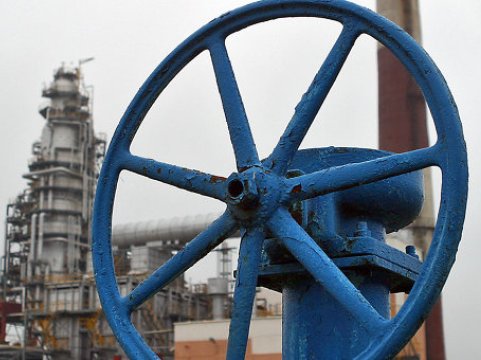BTC may be alternative to Baku-Novorossiysk oil flow

By Gulgiz Dadashova
Resumption of Azerbaijani oil transportation through the Baku-Novorossiysk northern route pipeline is in the focus of Russia and Azerbaijan.
The contract on the transit of Azerbaijani oil through the territory of its giant northern neighbor, which had been in effect for 17 years, was revoked in early May.
Earlier the sides made clear that Azerbaijan's state energy company SOCAR and Russia's Transneft will continue the talks on the issue, which would be resolved on the basis of good neighborly relations.
SOCAR head Rovnag Abdullayev said a solution that is economically sound for both sides will be found in the issue of the transit of Azerbaijani oil through Russia.
"Reaching an agreement between the parties requires consideration of a number of commercial issues. First of all, a quality oil bank should be established for the pumping of the necessary amount of oil," Abdullayev told journalists on May 27.
Russian Prime Minister Dmitry Medvedev earlier signed an order to revoke the intergovernmental agreement, which envisaged transportation of 5 million tons a year of Azerbaijani oil via the Baku-Novorossiysk pipeline for $15.67 per ton of oil transit. The Russian government explained the decision with considerable loss.
Azerbaijan has repeatedly cited the possibility of amending the agreement, which would increase the volume of transported oil.
Azerbaijan transports around 2.5 million tons of oil through the pipeline on average. The volume of the Azerbaijani oil transportation via this route was 2.2 million tons in 2010, and 2 million tons each in 2011 and 2012.
Abdullayev said that Azerbaijan also incurred loss during the transportation of oil through Russia because Azeri Light oil is exported from Novorossiysk under the URALS brand.
Urals -- a mix of heavy and high-grade oil of the Urals with light oil of western Siberia supplied through the Baku-Novorossiysk pipeline and the Druzhba pipeline system -- is traded on world exchanges at a price lower by $4 per barrel than the Azerbaijani crude.
The SOCAR president went on to say that there are other issues and opportunities that should also be considered, particularly the possibility of oil transportation via a third party or reversing the pipeline flow.
"The economic efficiency of all possible options will be considered," Abdullayev said.
He said that the parties will consider and agree on all issues by the end of 2013. "There is enough time," Abdullayev said, adding that the oil transportation via the Baku-Novorossiysk pipeline will be continued in accordance with the existing agreement until 2014.
Meanwhile, a senior SOCAR official said that in case of a refusal to transport the Azerbaijani oil via the Baku-Novorossiysk pipeline, it can be sent through the Baku-Tbilisi-Ceyhan (BTC) pipeline.
If the sides fail to agree on the oil transportation via the Baku-Novorossiysk route, the oil can be exported via BTC and it will be beneficial for the consortiums on the BTC oil pipeline and the development of the Azeri-Chirag-Guneshli (ACG) oil and gas fields.
"Increased transportation via BTC would lead to a reduction of the tariff for pumping oil from the ACG, which is also beneficial for the state," the official said.
In this case, the BTC consortium should provide rates that would be commercially attractive for transporting oil through the pipeline rather than by rail.
Besides Novorossiysk, oil from Azerbaijan is delivered to the Georgian Black Sea port of Supsa, and from there to the Mediterranean coast of Turkey via the BTC pipeline. Both routes can fully meet the needs for pumping Azerbaijani oil.
Thus, maintaining oil transportation via the Baku-Novorossiysk pipeline meets the interests of Azerbaijan in terms of diversification of routes, rather that having a single route upon which the country relies entirely.
Here we are to serve you with news right now. It does not cost much, but worth your attention.
Choose to support open, independent, quality journalism and subscribe on a monthly basis.
By subscribing to our online newspaper, you can have full digital access to all news, analysis, and much more.
You can also follow AzerNEWS on Twitter @AzerNewsAz or Facebook @AzerNewsNewspaper
Thank you!
